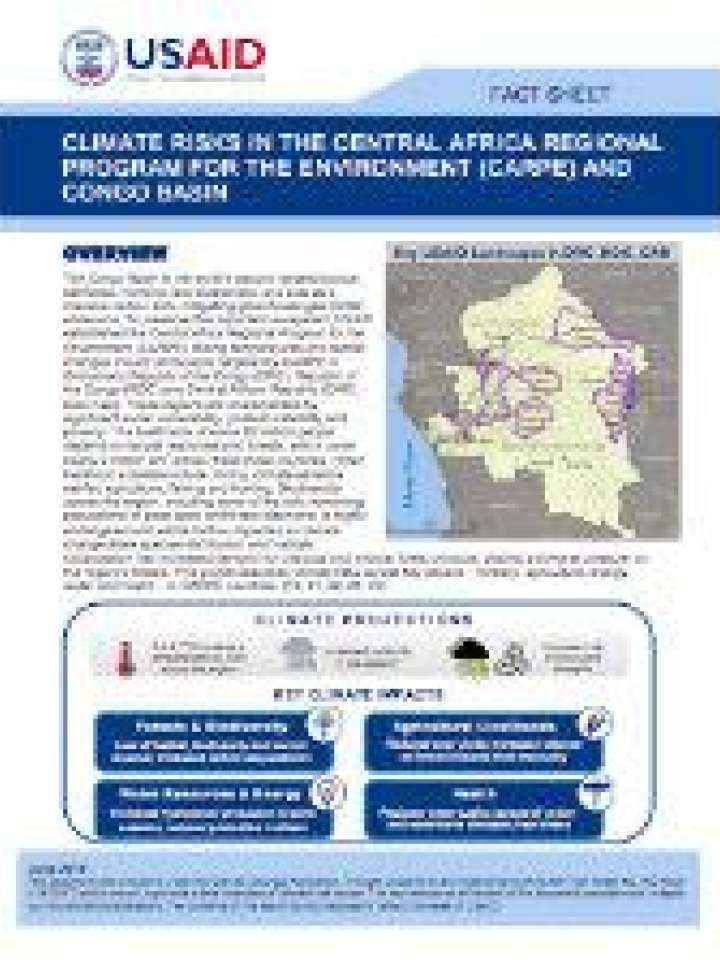This profile provides an overview of climate risk issues across three Central Africa Regional Program for the Environment (CARPE) countries: Democratic Republic of the Congo (DRC), Republic of the Congo (ROC) and Central African Republic (CAR). This profile describes climate risks across key sectors – forestry, biodiversity, agriculture, energy, water and health – and provides information on the policy context and ongoing climate change projects in the region.
The Congo Basin is home to rare biodiversity and acts as a massive carbon sink, yet the region is also characterized by significant social vulnerability, political instability and poverty. To preserve this important ecosystem, USAID established CARPE. Rising temperatures and rainfall changes impact key landscapes supported by CARPE. The livelihoods of some 80 million people depend on the Congo Basin’s vast natural resources and forests. Biodiversity across the region, including some of the only remaining populations of great apes and forest elephants, is highly endangered and will be further impacted as climate change alters species distribution and habitats. Urbanization has increased demand for charcoal and tropical forest products, placing additional pressure on the region’s critical forests.
